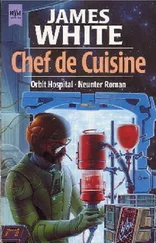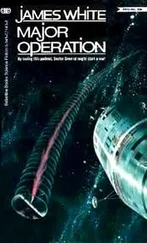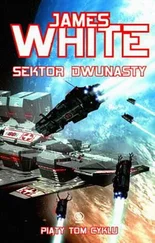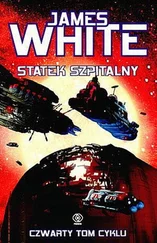Ross stood the picture against the bust of Beethoven and looked at it for a long time. Finally, he turned to Sister and said, “I want to go to sleep.”
They both knew that he wasn’t talking about bed.
While he slept his world of grass absorbed carbon and C0 2from the soil and air, synthesizing oxygen. Over the centuries the oxygen content of the atmosphere increased, doubled. “It was inevitable that a long dry spell would occur, broken by a sudden thunderstorm. A flash of lightning stabbed earthward, igniting the grass, which now grew in spines twenty feet high. Within minutes there raged a conflagration covering several acres, which hurled towering fountains of sparks into the sky and spread with the speed of the wind. For in that oxygen-rich air even the damp material caught and the sparks never went out. A tidal wave of fire swept across the continental land masses, slowed but never stopped by rainstorms, adverse winds or mountain ranges. A few islands in mid-Pacific escaped, but all the others caught the airborne contagion and became their own funeral pyre.
Ross awoke to a scene which made him think that Time had gone full circle: sooty ground, smoke and a baleful, red-ringed sun. Before he could say anything Sister explained what had happened, then went on to assure him that the amount of carbon released into the atmosphere had restored the oxygen content to normal and that the combustion products currently fouling the air would, as they had done once before, disappear with time. Her reason for awakening him was to report on the progress of the sea grass.
Violent tides pulled up by the approaching moon, she began, had forced the grass to seek the more sheltered environment of the ocean bed. Here extreme pressure, darkness and a gradually rising temperature had brought about a significant mutation. In order to keep alive in those conditions the plants had to absorb large quantities of necessary minerals from the sea bed, and at the same time, because they had to retain their defensive mobility, their roots had to be shallow. The result was that they had to keep on the move.
Recently these mobile plants had begun to band together. There were now several hundred colonies of them crawling like vast, moving carpets across the ocean floor, grazing for minerals and the non-mobile strains of their own species.
“Leave them for a couple of million years,” said Ross, sighing, “and see what happens.” He turned to go below again. He agreed that it was a most significant mutation, the most promising yet, but his capacity for hope had gone.
Sister moved quickly in front of him. She said, “I would prefer you to remain awake, sir.”
The wording and accompanying action made it seem more an order than a request. Ross felt anger stir within him, then die again. He said, “Why?”
“For psychological reasons, sir,” the robot replied, respectfully enough. “You should remain awake for one month at least, so that you can appreciate and understand what has happened during the preceding period of suspended animation. Major changes are occurring and you are giving yourself no time to adjust to them. You must interest yourself in things again. We… we fear for your sanity, sir.”
Ross was silent. In the present circumstances, he thought, sanity was a distinct disadvantage.
“We could hold another review, sir,” Sister went on. “There are not as many robots available as there were last time, but then the visibility is not so good, either. We were thinking that we might stage a mock battle for you. The casualties would have to be pretended, of course, because we may not willfully damage or destroy ourselves unless in the defense of a human being, but we have absorbed many books on the subject of war and are confident that we could put on a show which would amuse you, sir.” Ross shook his head.
“There are ways in which you could assist us…” began Sister, and then for the first time in countless thousands of years she began to tick! “How?” said Ross, interested at last. Outside a sudden rain squall left the ground steaming and the sky reasonably clear. Above the sea a vast, fuzzy crescent shone through the smoke haze. The sun was a formless white glare on the western horizon, so this must be the moon. Ross felt a tiny surge of hope at the sight, but it was the sad, negative sort of hope, the hope of escape.
He had missed Sister’s opening remarks, and brought his mind back to present time to hear her saying, “…your instructions give us very little to occupy our time, and even a robot can become bored when forced simply to observe minute changes which require thousands of years to become manifest. For this reason we have, with the enormous store of data at our disposal, sought methods of reevaluating and extending our knowledge of the sciences. With the physical sciences we have made considerable progress…”
She began to tick again in the way which used to be indicative of a major dilemma. This was something about which she must feel very strongly.
“…But in the social and related sciences we have encountered problems on which we need human guidance,” she finished with a rush. “Such as?” said Ross.
“An example,” said Sister. “Is it allowable to force human beings into an advanced state of civilization rapidly, by means of periodic wars, supposing that there are very good, but not vital, reasons for wanting their advance to be rapid?”
You have been getting in deep water, Ross thought, surprised and more than a little awed. Aloud, he said, “Speaking from experience, I’d say that it is not allowable under any circumstances. Your hypothetical human beings should advance slowly and naturally, so that physical knowledge should not outstrip the psychological, if they are to survive to enjoy their advances…” He stopped, a growing suspicion beginning to form in his mind; then he added, “I know this is a hypothetical problem, but are the robots by any chance planning on fighting a war among themselves to increase their—”
“No, sir,” said Sister.
But the suspicion would not leave him. He was remembering a discussion he had had with Sister a long time ago, about kindness, and lying, and puns. Certainly she had never made anything remotely resembling a pun, but she had done a few things which were meant to be kind. Maybe…
“Are you telling the truth?” he asked sharply.
“Yes, sir,” said Sister again.
“If you are, that’s what you would say,” Ross said thoughtfully. “And if you are lying that is still what you would say.” His voice became suddenly harsh. “But remember this. I want no wars, no matter how good the reasons appear for having them. That is an order!”
“I understand, sir.”
“And to keep your busy little minds out of mischief,” he went on, more quietly, “I have a job for you. It will require considerable time and effort, but when built will give me much more pleasure than any review or war games…”
In Xanadu did Kubla Khan …
Ross envisaged a palace to end all palaces, a slender shining tower a mile high possessing the internal capacity of a large city. The structural material would be transparent, allowing an unimpeded view in all directions while at the same time blocking off the heat and glare from the sun. Architecturally it would be simple and esthetically pleasing, as a whole and in its internal subdivisions, which should blend with and at the same time accentuate their contents. Furnishing his palace might be an even longer job than building it, because he wanted it to house reconstructions of all the famous sculptures, paintings, tapestries and other art treasures of the world. And at the earliest possible moment he wanted to be moved into the new structure. He was growing tired of always waking in his underground room, and when the new building was complete he wanted the old hospital closed up.
Читать дальше












